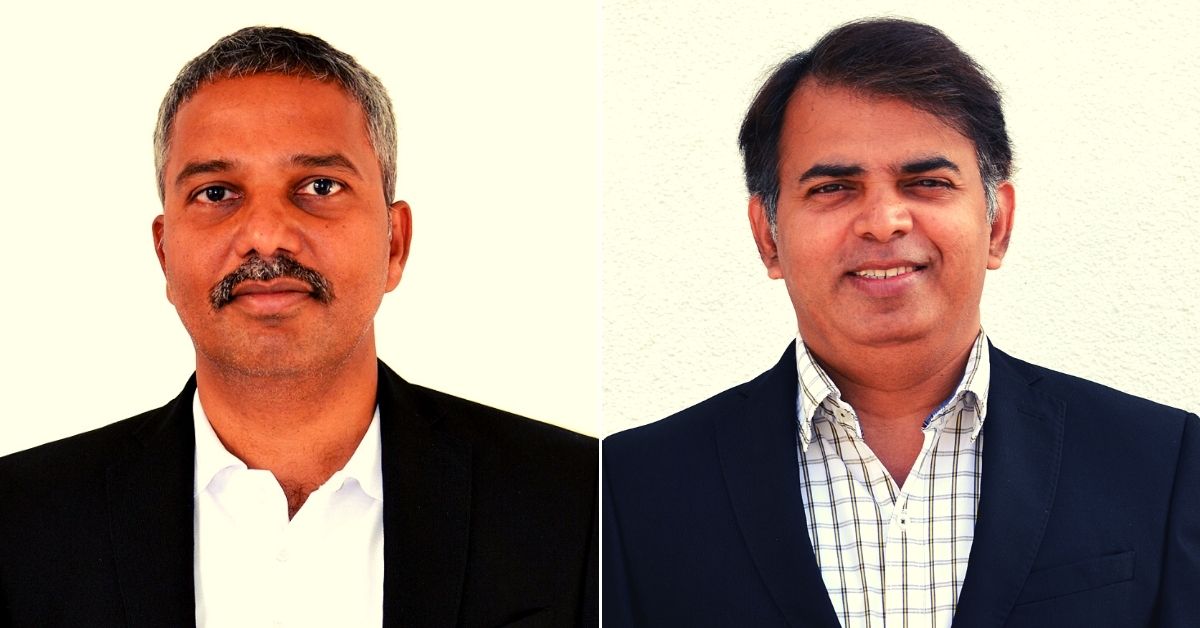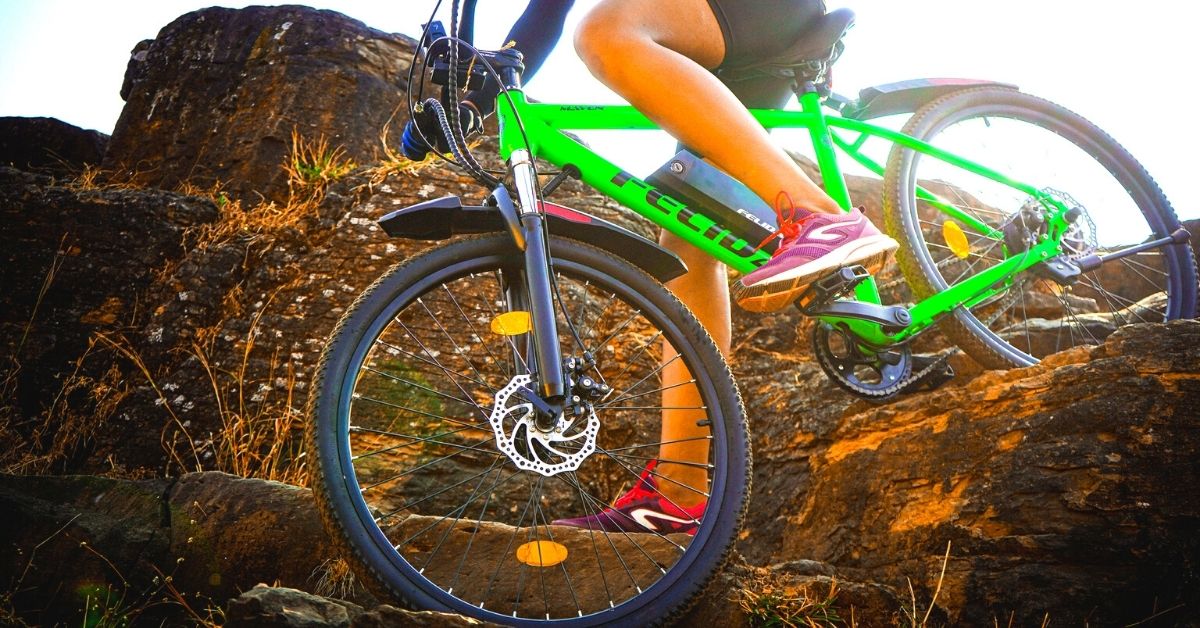Felidae Electric, a Pune-based electric vehicle startup, offers a novel solution that allows consumers to keep their original bicycle but convert it to electric. The electric bike conversion kit costs Rs 20,000 and consumers can install it by themselves in 20 minutes.
With this, what was once an ordinary mechanical bicycle is now an e-cycle that gives consumers a top speed of 25 kmph. Alongside, it offers a battery range (on throttle) of 40 to 50 km on a single charge depending on factors like the person’s body weight, road conditions and level of pedal assist. Meanwhile, a tracker in the 36V 7.8 Ah lithium ion detachable battery allows users to track the cycle on their app, which is called FeFit.
The e-conversion kit contains a 250W Hub BLDC motor, a 36V 7.8 Ah Samsung lithium ion detachable battery with a charger, sine wave BLDC motor controller, advanced LCD display, throttle and electric brakes, and a pedal assist sensor.
“Anyone can install our e-conversion kit within 20 minutes. You don’t really need external assistance. The entire electrical drive system is connected. For example, the motor comes with the back wheel and rims. All the customer has to do is attach the back wheel to the cycle and remove the existing back wheel. Along with the kit, we also offer our customers a manual, explaining which wire goes where. You can also call our support team. We will soon have a video explaining all this in a simple manner,” Reon Mathew, a senior executive with Felidae Electric, tells The Better India.
Installing an e-bike conversion kit lets consumers keep their original bike, saves a significant amount of money, and is relatively easy to put in place.
“Nowadays, we have to spend a minimum of Rs 25,000 just to buy a good mobile phone, so to be able to convert a normal mechanical bicycle into a good quality electrical bicycle at just Rs 20,000 is a huge benefit for users. After the global pandemic, people have become very self-conscious about their health, so an e-kit is a wonderful solution for those looking to keep fit as well as reach their destination on time,” adds Reon.
Creating a niche in the e-cycle market
Felidae Electric is the endeavour of co-founders Dr Krishnarao Dhuri (CTO), a PhD from IIT-Bombay who previously worked on renewable energy and transportation, and Anand Gawde (CEO), an alumnus of BITS Pilani with nearly two decades of experience in corporate India. The company was launched in 2017.

Having known each other since their college days, where they studied mechanical engineering, the two kept in touch over the years and often spoke about venturing into the electric mobility space later in their careers. Dr Krishna first laid the foundation for their company in 2017. Anand, meanwhile, extended his help in setting up the company from afar until it shifted base to Pune, when they started working together to build Felidae Electric as co-founders.
“There are many companies in India selling e-cycles, but what sets our venture apart is the price point at which we are selling them. Other companies don’t actually manufacture their own e-cycles, they import the parts, assemble and resell it. We are an indigenously developed e-bicycle brand that has developed a complete electric-drive system locally. We manufacture our e-cycles from scratch. Our objective is to make e-cycles at an affordable price point. In a country like India, where disposable incomes aren’t very high, you need to sell e-cycles at a more acceptable price point. You can sell it for prices above Rs 40,000 or Rs 50,000, but people would instead rather buy a standard scooty,” claims Reon.
Using their technical acumen and business experience, they built a team of engineers, which included senior technologists Rajnish Kumar and Advaid Sundare, who are qualified experts in electronics and communications, and are well-versed in coding.
When they first began, one of the biggest challenges they faced was finding the right technology for their product. The team first started with developing advanced controllers for the electric bicycles.
“But later, the team developed the technology for the complete electric-system, which involved components such as the motor, battery power pack, displays, GPS tracking system, e-brakes, and cadence sensor to name a few. There were challenges in getting good quality mechanical bicycles in India. Therefore, the team designed their own frames and localised their manufacturing. So, the product is more than 90% localised. From the beginning, we were of the mindset that if you’re entering the market, you either enter the best or don’t enter at all. There could be no half measures in fulfilling our objectives,” Anand says.
After two years of extensive research and development on the e-cycle technology, which also included six months of rigorous testing in tough conditions and understanding consumer approach to e-cycles in India, they launched the Maven e-cycle in 2019 at an initial price of Rs 24,500. Today, it’s priced at Rs 27,500, because the price of raw materials they import to manufacture the parts have increased as a result of higher import duties, the company says.
“We are manufacturing the second most affordable e-cycle in India right now, and given the price point, it’s the best in the country because of the features. The only e-cycle which is at a lower price point than Maven costs Rs 24,999. But the battery we use is a 7.8 Ah lithium ion battery, which gives us a range of 50 km on a single charge,” adds Dr. Krishnarao.
Offering a top speed of 30 kmph on its five-level pedal assist feature, its detachable lithium ion battery takes about three and a half hours to charge fully. The cycle weighs a light 21 kg and is both water and dust proof, claims the Pune startup.

Raising the bar
Until December 2020, the startup was selling the Maven e-cycle in only two cities — Pune and Kolhapur. “Back in January 2021, we had ties with just 10 dealerships across two cities. In the span of seven months, we now have ties with 85 dealerships across most major cities. We’ve sold a good number of units in that period,” claims Reon.
The only thing the startup imports are lithium ion cells and other raw materials like magnets that go into the motor, the aluminium coil or the printed circuit board (PCB), they say.
“Now the company is working on several high-end products like ‘Mid-drive’ driven electric bicycles and different mechanical frames. In the past few years, we have seen our venture grow. From four employees in 2017, today the company employs over 70 people,” Reon says.
He adds, “Another reason for our low prices is that unlike other brands who make big margins on each unit, we don’t. Our goal is not just to make profits, but also make a change, connect with common consumers and inspire their transition to electric vehicles. In spite of not making enormous profits, we have investors who continue to back our vision.”
(Edited by Divya Sethu)
No comments:
Post a Comment